 Tìm kiếm
Tìm kiếm
Chương VI Nghị định 146/2018/NĐ-CP: Thanh toán chi phí khám bệnh, chữa bệnh giữa cơ quan bảo hiểm xã hội và cơ sở khám bệnh, chữa bệnh
| Số hiệu: | 146/2018/NĐ-CP | Loại văn bản: | Nghị định |
| Nơi ban hành: | Chính phủ | Người ký: | Nguyễn Xuân Phúc |
| Ngày ban hành: | 17/10/2018 | Ngày hiệu lực: | 01/12/2018 |
| Ngày công báo: | 02/11/2018 | Số công báo: | Từ số 1019 đến số 1020 |
| Lĩnh vực: | Bảo hiểm, Y tế | Tình trạng: | Còn hiệu lực |
TÓM TẮT VĂN BẢN
Đây là nội dung nổi bật tại Nghị định 146/2018/NĐ-CP quy định chi tiết và hướng dẫn biện pháp thi hành một số điều của Luật bảo hiểm y tế.
Theo đó, chậm nhất đến ngày 01/01/2020 cơ quan bảo hiểm xã hội phải có trách nhiệm thực hiện phát hành thẻ bảo hiểm y tế điện tử cho người tham gia bảo hiểm y tế.
Ngoài ra, Nghị định cũng làm rõ những quy định sau:
- Đối với mức đóng của nhóm tham gia bảo hiểm y tế theo hộ gia đình thì được giảm trừ mức đóng khi các thành viên tham gia bảo hiểm y tế cùng tham gia trong năm tài chính.
- Người hoạt động kháng chiến bị nhiễm chất độc hóa học có tỷ lệ suy giảm khả năng lao động từ 81% trở lên thì được mức hưởng 100% chi phí khám bệnh, chữa bệnh.
Nghị định 146/2018/NĐ-CP có hiệu lực từ ngày 01/12/2018.
Văn bản tiếng việt
Văn bản tiếng anh
1. Thanh toán theo giá dịch vụ là phương thức thanh toán chi phí khám bệnh, chữa bệnh trên cơ sở giá dịch vụ khám bệnh, chữa bệnh do cấp có thẩm quyền quy định và chi phí về thuốc, hóa chất, vật tư y tế, máu, chế phẩm máu chưa được tính vào giá dịch vụ được sử dụng cho người bệnh tại cơ sở khám bệnh, chữa bệnh.
2. Thanh toán theo giá dịch vụ khám bệnh, chữa bệnh được áp dụng để thanh toán chi phí khám bệnh, chữa bệnh bảo hiểm y tế, trừ chi phí của các dịch vụ y tế đã được thanh toán theo phương thức khác.
a) Giá dịch vụ khám bệnh, chữa bệnh bảo hiểm y tế áp dụng thống nhất đối với các bệnh viện cùng hạng trên toàn quốc;
b) Chi phí thuốc, hóa chất, vật tư y tế chưa tính vào giá dịch vụ khám bệnh, chữa bệnh thì thanh toán theo giá mua theo quy định của pháp luật về đấu thầu;
c) Chi phí máu và chế phẩm máu thanh toán theo hướng dẫn của Bộ trưởng Bộ Y tế.
4. Tổng mức thanh toán chi phí khám bệnh, chữa bệnh bảo hiểm y tế cho cơ sở khám bệnh, chữa bệnh hàng năm được tính theo công thức sau:
T = [Tn-1 x k] thuốc, hóa chất + [Tn-1 x k] vật tư y tế + [Tn-1] máu, chế phẩm máu + [Tn-1] dịch vụ khám bệnh, chữa bệnh+ Cn
Trong đó:
a) T là tổng mức thanh toán chi phí khám bệnh, chữa bệnh bảo hiểm y tế tại cơ sở bằng tổng mức thanh toán chi phí khám bệnh, chữa bệnh nội trú và tổng mức thanh toán chi phí khám bệnh, chữa bệnh ngoại trú;
b) Tn-1 là chi phí khám bệnh, chữa bệnh bảo hiểm y tế năm trước liền kề tại cơ sở đã được cơ quan bảo hiểm xã hội thẩm định quyết toán;
c) k là hệ số điều chỉnh do biến động về giá thuốc, hóa chất, vật tư y tế tại cơ sở khám bệnh, chữa bệnh tương ứng của từng yếu tố thuốc, hóa chất, vật tư y tế chưa được tính vào giá dịch vụ, không bao gồm các chi phí đã được tính trong Cn.
d) Cn là phần chi phí phát sinh tăng hoặc giảm trong năm tại cơ sở do các nguyên nhân: áp dụng dịch vụ kỹ thuật mới; bổ sung thuốc, hóa chất mới, vật tư y tế mới; áp dụng giá dịch vụ khám bệnh, chữa bệnh bảo hiểm y tế mới; giá máu, chế phẩm máu mới; điều chỉnh hạng bệnh viện; đối tượng người có thẻ bảo hiểm y tế; thay đổi phạm vi hoạt động của cơ sở khám bệnh, chữa bệnh theo quyết định của cấp có thẩm quyền (nếu có); thay đổi mô hình bệnh tật; số lượt khám bệnh, chữa bệnh. Chi phí này được tổng hợp vào chi phí thực tế để làm cơ sở tính tổng mức thanh toán chi phí khám bệnh, chữa bệnh bảo hiểm y tế cho cơ sở khám bệnh, chữa bệnh.
5. Quỹ bảo hiểm y tế thanh toán chi phí khám bệnh, chữa bệnh theo báo cáo quyết toán năm của cơ sở khám bệnh, chữa bệnh đã được thẩm định nhưng không vượt tổng mức thanh toán chi phí khám bệnh, chữa bệnh bảo hiểm y tế được xác định theo quy định tại khoản 4 Điều này.
6. Hàng năm, căn cứ chỉ số giá của từng yếu tố thuốc, hóa chất, vật tư y tế do Tổng cục Thống kê công bố, Bộ Y tế thông báo hệ số k sau khi thống nhất với Bộ Tài chính.
1. Thanh toán theo định suất được áp dụng đối với cơ sở khám bệnh, chữa bệnh có khám bệnh, chữa bệnh bảo hiểm y tế ngoại trú.
2. Phạm vi thanh toán theo định suất, bao gồm chi phí trong phạm vi được hưởng và mức hưởng của người có thẻ bảo hiểm y tế đăng ký khám bệnh, chữa bệnh ban đầu tại cơ sở khám bệnh, chữa bệnh và người có thẻ bảo hiểm y tế đăng ký khám bệnh, chữa bệnh ban đầu tại các cơ sở khám bệnh, chữa bệnh khác đến khám bệnh, chữa bệnh tại cơ sở khám bệnh, chữa bệnh đó.
3. Các bệnh, nhóm bệnh, dịch vụ y tế, chi phí không thuộc phạm vi thanh toán theo định suất do Bộ trưởng Bộ Y tế quy định.
4. Quỹ định suất giao cho cơ sở khám bệnh, chữa bệnh bảo hiểm y tế hàng năm phải bảo đảm trong phạm vi quỹ định suất giao cho tỉnh và trong phạm vi quỹ định suất toàn quốc.
5. Xử lý chênh lệch quỹ định suất giao cho cơ sở khám bệnh, chữa bệnh
a) Trường hợp quỹ định suất có kết dư trong năm (quỹ định suất được giao lớn hơn chi khám bệnh, chữa bệnh), cơ sở khám bệnh, chữa bệnh hạch toán số kết dư này vào nguồn thu sự nghiệp của đơn vị và làm căn cứ xác định quỹ định suất cho năm sau. Trường hợp cơ sở khám bệnh, chữa bệnh được giao ký hợp đồng thực hiện khám bệnh, chữa bệnh ban đầu bao gồm cả trạm y tế xã, cơ sở có trách nhiệm chuyển một phần kết dư cho các trạm y tế xã;
b) Trường hợp quỹ định suất bội chi trong năm (quỹ định suất được giao nhỏ hơn chi khám bệnh, chữa bệnh), cơ sở khám bệnh, chữa bệnh tự cân đối trong nguồn thu của cơ sở khám bệnh, chữa bệnh theo quy định.
6. Trường hợp tổng chi phí trong phạm vi quỹ định suất toàn quốc năm giao quỹ lớn hơn tổng quỹ định suất toàn quốc đã giao, Bảo hiểm xã hội Việt Nam tổng hợp, báo cáo Hội đồng quản lý Bảo hiểm xã hội Việt Nam thông qua và báo cáo Bộ Tài chính, Bộ Y tế. Bộ Y tế chủ trì, phối hợp với Bộ Tài chính xem xét, tổng hợp trình Thủ tướng Chính phủ quyết định.
7. Bộ trưởng Bộ Y tế quy định phạm vi thực hiện, lộ trình thực hiện, kỹ thuật xác định quỹ và thanh toán theo định suất quy định tại Điều này.
1. Người tham gia bảo hiểm y tế thuộc đối tượng quy định tại các khoản 3, 4, 7, 8, 9 và 11 Điều 3 Nghị định này trong trường hợp cấp cứu hoặc đang điều trị nội trú phải chuyển tuyến chuyên môn kỹ thuật từ cơ sở khám bệnh, chữa bệnh tuyến huyện lên tuyến trên, bao gồm:
a) Từ tuyến huyện lên tuyến tỉnh;
b) Từ tuyến huyện lên tuyến trung ương.
2. Mức thanh toán chi phí vận chuyển:
a) Trường hợp sử dụng phương tiện vận chuyển của cơ sở khám bệnh, chữa bệnh chỉ định chuyển tuyến thì quỹ bảo hiểm y tế thanh toán chi phí vận chuyển cả chiều đi và về cho cơ sở khám bệnh, chữa bệnh đó theo mức bằng 0,2 lít xăng/km tính theo khoảng cách thực tế giữa hai cơ sở khám bệnh, chữa bệnh và giá xăng tại thời điểm chuyển người bệnh. Nếu có nhiều hơn một người bệnh cùng được vận chuyển trên một phương tiện thì mức thanh toán cũng chỉ được tính như đối với vận chuyển một người bệnh. Cơ sở khám bệnh, chữa bệnh tiếp nhận người bệnh ký xác nhận trên phiếu điều xe của cơ sở chuyển người bệnh đi; trường hợp ngoài giờ hành chính thì phải có chữ ký của bác sỹ tiếp nhận người bệnh;
b) Trường hợp không sử dụng phương tiện vận chuyển của cơ sở khám bệnh, chữa bệnh thì quỹ bảo hiểm y tế thanh toán chi phí vận chuyển một chiều (chiều đi) cho người bệnh theo mức bằng 0,2 lít xăng/km tính theo khoảng cách thực tế giữa hai cơ sở khám bệnh, chữa bệnh và giá xăng tại thời điểm chuyển người bệnh lên tuyến trên. Cơ sở khám bệnh, chữa bệnh chỉ định chuyển tuyến có trách nhiệm thanh toán khoản chi này trực tiếp cho người bệnh trước khi chuyển tuyến, sau đó thanh toán với cơ quan bảo hiểm xã hội.
1. Thanh toán chi phí khám bệnh, chữa bệnh đối với trẻ em dưới 6 tuổi trong trường hợp chưa có thẻ bảo hiểm y tế: cơ sở khám bệnh, chữa bệnh tổng hợp danh sách trẻ em dưới 6 tuổi và chi phí khám bệnh, chữa bệnh bảo hiểm y tế theo phạm vi được hưởng và mức hưởng gửi cơ quan bảo hiểm xã hội thanh toán theo quy định.
Cơ quan bảo hiểm xã hội căn cứ danh sách số trẻ em đã được khám bệnh, chữa bệnh do cơ sở khám bệnh, chữa bệnh chuyển đến, có trách nhiệm kiểm tra, xác minh việc cấp thẻ bảo hiểm y tế cho trẻ; thực hiện thanh toán chi phí khám bệnh, chữa bệnh. Trường hợp trẻ em chưa được cấp thẻ thì thực hiện cấp thẻ theo quy định.
2. Thanh toán chi phí khám bệnh, chữa bệnh đối với người đã hiến bộ phận cơ thể người phải điều trị ngay sau khi hiến mà chưa có thẻ bảo hiểm y tế: cơ sở khám bệnh, chữa bệnh sau khi lấy bộ phận cơ thể người có trách nhiệm tổng hợp danh sách số người đã hiến và chi phí khám bệnh, chữa bệnh theo phạm vi được hưởng và mức hưởng bảo hiểm y tế sau khi hiến, gửi cơ quan bảo hiểm xã hội để thanh toán theo quy định.
Cơ quan bảo hiểm xã hội căn cứ danh sách số người đã hiến bộ phận cơ thể đã được khám bệnh, chữa bệnh sau khi hiến và chi phí do cơ sở khám bệnh, chữa bệnh chuyển đến để thực hiện thanh toán, cấp thẻ bảo hiểm y tế.
3. Thanh toán chi phí khám bệnh, chữa bệnh đối với người bệnh có thời gian tham gia bảo hiểm y tế 05 năm liên tục trở lên và có số tiền cùng chi trả chi phí khám bệnh, chữa bệnh trong năm lớn hơn 06 tháng lương cơ sở theo quy định tại điểm đ khoản 1 Điều 14 Nghị định này:
a) Trường hợp người bệnh có số tiền cùng chi trả tại một lần hoặc nhiều lần khám bệnh, chữa bệnh tại cùng cơ sở khám bệnh, chữa bệnh đó lớn hơn 06 tháng lương cơ sở thì cơ sở khám bệnh, chữa bệnh không thu số tiền cùng chi trả lớn hơn 06 tháng lương cơ sở của người bệnh. Cơ sở khám bệnh, chữa bệnh có trách nhiệm cung cấp hóa đơn thu đối với số tiền cùng chi trả đủ 06 tháng lương cơ sở để người bệnh có căn cứ đề nghị cơ quan bảo hiểm xã hội xác nhận không phải cùng chi trả trong năm đó;
b) Trường hợp người bệnh có số tiền cùng chi trả lũy kế trong năm tài chính tại các cơ sở khám bệnh, chữa bệnh khác nhau hoặc tại cùng một cơ sở khám bệnh, chữa bệnh lớn hơn 06 tháng lương cơ sở thì người bệnh mang chứng từ đến cơ quan bảo hiểm xã hội nơi cấp thẻ bảo hiểm y tế để thanh toán số tiền cùng chi trả lớn hơn 06 tháng lương cơ sở và nhận giấy xác nhận không phải cùng chi trả trong năm đó;
c) Trường hợp người bệnh có số tiền cùng chi trả vượt quá 06 tháng lương cơ sở được tính từ ngày 01 tháng 01, quỹ bảo hiểm y tế thanh toán 100% chi phí khám bệnh chữa bệnh trong phạm vi quyền lợi của người bệnh kể từ thời điểm người bệnh tham gia đủ 05 năm liên tục đến hết ngày 31 tháng 12 của năm đó.
4. Trường hợp chuyển tuyến khám bệnh, chữa bệnh đối với người bệnh cần phải có nhân viên y tế đi kèm và có sử dụng thuốc, vật tư y tế theo yêu cầu chuyên môn trong quá trình vận chuyển, thì chi phí thuốc, vật tư y tế được tổng hợp vào chi phí điều trị của cơ sở khám bệnh, chữa bệnh chỉ định chuyển tuyến.
5. Trường hợp người bệnh sau khi đã điều trị nội trú ổn định nhưng cần phải tiếp tục sử dụng thuốc sau khi ra viện theo chỉ định của cơ sở khám bệnh, chữa bệnh theo quy định của Bộ trưởng Bộ Y tế, quỹ bảo hiểm y tế thanh toán chi phí thuốc trong phạm vi được hưởng và mức hưởng theo chế độ quy định. Cơ sở khám bệnh, chữa bệnh tổng hợp khoản chi thuốc này vào chi phí khám bệnh, chữa bệnh của người bệnh trước khi ra viện.
6. Trường hợp cơ sở khám bệnh, chữa bệnh không thực hiện được xét nghiệm cận lâm sàng, chẩn đoán hình ảnh, thăm dò chức năng và phải chuyển người bệnh hoặc mẫu bệnh phẩm đến cơ sở khám bệnh, chữa bệnh bảo hiểm y tế hoặc cơ sở được cấp có thẩm quyền phê duyệt đủ điều kiện thực hiện để thực hiện các dịch vụ đó, thì quỹ bảo hiểm y tế thanh toán chi phí thực hiện dịch vụ trong phạm vi được hưởng và mức hưởng theo quy định cho cơ sở khám bệnh, chữa bệnh nơi chuyển người bệnh, mẫu bệnh phẩm. Cơ sở khám bệnh, chữa bệnh chuyển người bệnh hoặc mẫu bệnh phẩm có trách nhiệm thanh toán chi phí cho cơ sở khám bệnh, chữa bệnh hoặc đơn vị thực hiện dịch vụ, sau đó tổng hợp vào chi phí khám bệnh, chữa bệnh của người bệnh để thanh toán với cơ quan bảo hiểm xã hội.
Bộ trưởng Bộ Y tế quy định nguyên tắc, danh mục xét nghiệm cận lâm sàng, chẩn đoán hình ảnh, thăm dò chức năng được chuyển đến cơ sở khám bệnh, chữa bệnh hoặc đơn vị thực hiện dịch vụ.
7. Thanh toán chi phí khám bệnh, chữa bệnh đối với các dịch vụ kỹ thuật do nhân viên của cơ sở khám bệnh, chữa bệnh chuyển giao kỹ thuật thực hiện theo chương trình chỉ đạo tuyến, đề án nâng cao năng lực chuyên môn cho cơ sở khám bệnh, chữa bệnh nhận chuyển giao kỹ thuật, hợp đồng chuyển giao kỹ thuật theo quy định của Bộ trưởng Bộ Y tế:
a) Trường hợp dịch vụ kỹ thuật đã được cấp có thẩm quyền phê duyệt cho cơ sở khám bệnh, chữa bệnh nhận chuyển giao kỹ thuật, quỹ bảo hiểm y tế thanh toán theo mức giá dịch vụ đã được phê duyệt;
b) Trường hợp dịch vụ kỹ thuật chưa được cấp có thẩm quyền phê duyệt cho cơ sở khám bệnh, chữa bệnh nhận chuyển giao kỹ thuật, cơ sở khám bệnh, chữa bệnh nhận chuyển giao kỹ thuật có trách nhiệm thông báo bằng văn bản cho cơ quan bảo hiểm xã hội ký hợp đồng khám bệnh, chữa bệnh bảo hiểm y tế về các dịch vụ kỹ thuật được thực hiện theo chương trình, đề án, hợp đồng để làm cơ sở thanh toán, đồng thời trình cấp có thẩm quyền phê duyệt danh mục kỹ thuật để làm cơ sở thực hiện khi tiếp nhận kỹ thuật y tế này;
c) Đối với chi phí về thuốc, hóa chất, vật tư y tế, quỹ bảo hiểm y tế thanh toán theo giá mua của cơ sở khám bệnh, chữa bệnh theo quy định về đấu thầu.
8. Thanh toán chi phí khám bệnh, chữa bệnh đối với trường hợp cơ sở khám bệnh, chữa bệnh triển khai kỹ thuật, phương pháp mới đã được cấp có thẩm quyền phê duyệt nhưng chưa có quy định về giá dịch vụ y tế thì cơ sở khám bệnh, chữa bệnh phải xây dựng và trình cấp có thẩm quyền phê duyệt giá dịch vụ kỹ thuật để làm căn cứ thanh toán. Cơ sở khám bệnh, chữa bệnh có trách nhiệm thông báo bằng văn bản cho cơ quan bảo hiểm xã hội về việc triển khai kỹ thuật, phương pháp mới.
9. Trường hợp người có thẻ bảo hiểm y tế đang điều trị nội trú tại cơ sở khám bệnh, chữa bệnh nhưng thẻ bảo hiểm y tế hết hạn sử dụng thì được quỹ bảo hiểm y tế thanh toán chi phí khám bệnh, chữa bệnh trong phạm vi được hưởng và mức hưởng cho đến khi ra viện nhưng tối đa không vượt quá 15 ngày kể từ ngày thẻ bảo hiểm y tế hết hạn sử dụng. Cơ sở khám bệnh, chữa bệnh có trách nhiệm thông báo cho người bệnh và cơ quan bảo hiểm xã hội nơi ký hợp đồng khám bệnh, chữa bệnh bảo hiểm y tế với cơ sở khám bệnh, chữa bệnh để người bệnh tiếp tục tham gia bảo hiểm y tế, cơ quan bảo hiểm xã hội thực hiện việc cấp hoặc gia hạn thẻ bảo hiểm y tế cho người bệnh trong thời gian đang điều trị tại cơ sở khám bệnh, chữa bệnh.
10. Thanh toán chi phí khám bệnh, chữa bệnh đối với cơ sở khám bệnh, chữa bệnh có tổ chức khám bệnh, chữa bệnh bảo hiểm y tế vào ngày nghỉ, ngày lễ:
a) Người có thẻ bảo hiểm y tế đến khám bệnh, chữa bệnh được quỹ bảo hiểm y tế thanh toán trong phạm vi được hưởng và mức hưởng bảo hiểm y tế;
b) Cơ sở khám bệnh, chữa bệnh có trách nhiệm bảo đảm về nhân lực, điều kiện chuyên môn, công khai những khoản chi phí mà người bệnh phải chi trả ngoài phạm vi được hưởng và mức hưởng bảo hiểm y tế và phải thông báo trước cho người bệnh; thông báo bằng văn bản cho cơ quan bảo hiểm xã hội để bổ sung vào hợp đồng khám bệnh, chữa bệnh trước khi thực hiện hoạt động khám bệnh, chữa bệnh vào ngày lễ, ngày nghỉ để làm cơ sở thanh toán.
ARRANGEMENT FOR PAYMENT OF MEDICAL COSTS BETWEEN SOCIAL INSURANCE AGENCIES AND HEALTHCARE ESTABLISHMENTS
Article 24. Service price-based payment
1. Payment made based on a service price refers to the method of payment of medical costs on the basis of the price of the medical examination and treatment service which is decided by a competent regulatory authority and costs of medicines, chemicals, medical supplies, blood, blood products which have not yet been included in the service price when being used for treatment of patients at a healthcare establishment.
2. The method for making payments based on prices of medical services shall be applied to the payment of health insurance-covered medical costs, except those costs of medical services which have been settled according to another payment method.
3. Payment principles:
a) The prices of health insurance-covered medical services shall be applied uniformly to same-rank hospitals nationwide;
b) If costs of medicines, chemicals and medical supplies have not been yet included in the prices of medical services, they shall be settled at the purchase prices under legislation on bidding;
c) Costs of blood and blood products shall be settled following instructions given by the Minister of Health.
4. Total annual payment of health insurance-covered medical costs to healthcare establishments shall be calculated according to the following formula:
T= [Tn-1 x k] medicines, chemicals + [Tn-1 x k] medical supplies + [Tn-1] blood, blood products +[Tn-1] medical services + Cn
Where:
a) T means total payment of health insurance-covered medical costs at a healthcare establishment equal to an addition of total inpatient medical cost and total payment of outpatient medical costs;
b) Tn-1 means the health insurance-covered medical cost incurred in the preceding year at a healthcare establishment of which settlement is audited by the social insurance agency;
c) k means the indexing factor indicating any adjustment made owing to any change in the price of medicines, chemicals and medical supplies at a healthcare establishment, relevant to specific elements of medicines, chemicals and medical supplies which have not been included in service prices, exclusive of costs included in Cn.
d) Cn means the cost increasing or decreasing within a year at a healthcare establishment for the following reasons: applying new technologies; providing an additional amount of medicines, chemicals and medical supplies; applying new prices of health insurance-covered medical services; applying new prices of blood and blood products; adjusting hospital ranks; adjusting persons eligible to be awarded health insurance cards; changing the scope of operations of the healthcare establishment under the competent authority’s decisions (if any); changing illness models; changing the number of a patient’s medical visits. This cost shall be integrated into the actual cost used as a basis for calculation of total payment of health insurance-covered medical costs to that healthcare establishment.
5. The health insurance fund shall pay medical costs based on the annual financial report of a healthcare establishment which have been evaluated but do not exceed total payment of health insurance-covered medical costs determined according to clause 4 of this Article.
6. On an annual basis, depending on the price indices of specific elements of medicines, chemicals and medical supplies, declared by the General Statistics Office, the Ministry of Health shall inform the k coefficient after reaching an agreement with the Ministry of Finance.
Article 25. Capitation payment
1. The capitation payment method shall be applied to healthcare establishments providing health insurance-covered outpatient medical services.
2. The capitation payment method shall be applied to costs in the list of health insurance-covered costs with entitlement rates with respect to health insurance card holders registering primary care services and those registering primary care services at another healthcare establishment who seek care at the healthcare establishment making capitation payments.
3. The capitation payment method shall not applied to diseases, groups of diseases, medical services or medical costs which are not in the list of those permitted for capitation payments, regulated by the Minister of Health.
4. The capitation payment fund’s allocations given to healthcare establishments providing health insurance-covered medical services must be within the provincial-level or national capitation payment fund limit.
5. Handling of the difference in the capitation payment fund’s allocations given to healthcare establishments
a) In case where the capitation payment fund has the residual value (i.e. the positive difference in which the capitation payment fund’s allocations are greater than medical costs), the healthcare establishment shall be required to post such residual value into its revenues and use it as a basis for determination of the next year’s capitation payment fund. In case where a healthcare establishment is authorized to sign a contract for provision of primary care services, even including commune-level health stations, it shall be responsible for transferring a part of the residual value to a commune-level health station;
b) In case of the capitation payment fund’s overspending within a financial year (i.e. the negative difference in which the capitation payment fund's allocations are less than medical costs), the healthcare establishment shall balance its revenue of their own accord in compliance with regulations in force.
6. In case where total cost falling within the national capitation payment fund’s annual limit on allocations is greater than total allocations already given by that fund, the Vietnam Social Security shall send a general report to the Council for Management of Vietnam Social Security for its approval and preparation of another report for submission to the Ministry of Finance and the Ministry of Health. The Ministry of Health shall preside over and cooperate with the Ministry of Finance in reviewing the submitted report and preparing the consolidated report for submission to the Prime Minister to seek decisions.
7. The Minister of Health shall regulate the scope and schedule of implementation, techniques for determination of the fund and capitation payment as prescribed in this Article.
Article 26. Payment of patient transportation costs
1. Patient transportation costs must be paid if a health insurance policyholder defined as one of those referred to in clause 3, 4, 7, 8, 9 and 11 of Article 3 hereof seeks emergency care or wishes to refer to shift the level of medical practices from a district-level healthcare establishment to the higher-level one, including:
a) From the district level to the provincial level;
b) From the district level to the central level.
2. Rate of payment of transportation costs:
a) In case of use of the means of transport owned by a referring healthcare establishment, the health insurance fund shall pay two-way transportation costs to that healthcare establishment at the rate equal to 0.2 petrol litre/kilometer based on the actual distance between two healthcare establishments and the petrol price quoted at the time of referral. If there is more than one patient transported on the same vehicle, the rate of payment shall be the same as that for transportation of a single patient. The receiving healthcare establishment shall sign on the transport order issued by the referring healthcare establishment; in case of such referral occurring out of administrative hours, the receiving physician's signature shall be required;
b) In case of use of the means of transport which is not owned by a referring healthcare establishment, the health insurance fund shall pay one-way (departing) transportation costs to that healthcare establishment at the rate equal to 0.2 petrol litre/kilometer based on the actual distance between two healthcare establishments and the petrol price quoted at the time of referral. The referring healthcare establishment shall be responsible for paying these costs directly to a patient before his/her referral, and then making payment arrangements with a social insurance agency.
Article 27. Payment of medical costs in certain cases
1. With respect to payment of medical costs to children under 6 years of age, if they have not been awarded health insurance cards, the healthcare establishment shall prepare the list of under-six-years-old children and health insurance-covered medical costs belonging in the list of costs covered by health insurance benefits with respective benefit entitlement rates for submission to the social insurance agency in accordance with regulations in force.
The receiving social insurance agency shall, based on the list of children who are sent from another healthcare establishment and have been provided with medical care services, assume responsibility for checking and verifying the issuance of health insurance cards to these children; making payments for medical costs. If they have not been awarded health insurance cards yet, these cards must be issued in accordance with regulations in force.
2. With respect to payment of medical costs to a person donating his/her organs, if he/she is required to receive medical treatment after donation but he/she has not been awarded the health insurance card yet, the healthcare establishment receiving his/her organ shall be responsible for preparing the list of donators and medical costs in the list of costs covered by health insurance benefits together with respective rates of benefit entitlement after donation for submission to the health insurance agency for completion of payments in accordance with regulations in force.
The health insurance agency shall, based on the list of organ donators who have receive medical examination and treatment services after donation and costs sent by the healthcare establishment, make payments and issue health insurance cards.
3. With respect to payment of medical costs of a patient participating in the health insurance for a consecutive period of at least 5 years and has made the co-payment of medical costs in a year which is greater than total base pay amount received during 6 months in accordance with point dd of clause 1 of Article 14 hereof:
a) If a patient makes co-payment for each visit or multiple visits for medical care at the same healthcare establishment which is greater than the base pay amount received during 6 months, that healthcare establishment shall not be allowed to collect the patient’s co-payment which is greater than the base pay amount that he/she has received during 6 months. The healthcare establishment shall be responsible for providing an invoice for the co-payment amount equal to the base pay amount during 6 months so that the patient can use it as a basis for requesting the health insurance agency to give its certification of exemption from making any co-payment in that year;
b) In case where the patient's accrued amount of co-payments in a financial year at different healthcare establishments or at the same healthcare establishment is greater than 6 months’ base pay amount, that patient may present evidencing documents to the social insurance agency issuing his/her health insurance card to pay the amount of co-payment greater than 6 months’ total base pay amount and receive the certification of exemption from co-payment in that year;
c) In case where the patient's co-payment amount is greater than the 6 months’ total base pay amount as from January 1, the health insurance fund shall cover 100% of costs incurred from healthcare services falling within the scope of a patient’s interests from the anniversary date of 5 consecutive years of health insurance participation to the end of December 31 in that year.
4. With respect to a hospital referral, if medical staff is required to accompany the patient, and medicines or medical supplies used to meet medical demands during the process of patient transportation are needed, costs incurred from use of these medicines or medical supplies shall be taken into account as medical care costs of the referring healthcare establishment.
5. In case where a patient retrieves a stable health conditions after the inpatient care stage, but continues to use medicines after hospital discharge according to the healthcare establishment's medical indication, subject to regulations of the Minister of Health, the health insurance fund shall pay costs of medicines falling in the list of health insurance-covered medicines with respective coverage rates determined according to the prescribed insurance benefits. The healthcare establishment shall enter costs of medicines into costs of medical care services of a patient before hospital discharge.
6. In case where a healthcare establishment does not perform any subclinical test, imaging diagnosis, functional assessment and has to refer a patient or send a pathology specimen to another healthcare establishment providing health insurance-covered medical services or any healthcare establishment accredited by a competent authority to render these services, the health insurance fund shall pay costs incurred from performing medical services in the list of health insurance-covered medical services with respective coverage rates in accordance with regulations adopted by the healthcare establishment referring the patient and sending the pathology specimen. The healthcare establishment referring the patient and sending the pathology specimen shall be responsible for paying costs incurred by the receiving healthcare establishment or the service provider, and then entering these costs into the patient’s medical costs as a basis for making payment arrangements with the social insurance agency.
The Minister of Health shall regulate principles and the list of subclinical test, imaging diagnosis and functional assessment services allowed to be sent to a healthcare establishment or a service provider.
7. Payment of medical costs for medical technology services performed by staff members of the transferor healthcare establishment of medical technologies according to programs for giving directions to lower-level healthcare establishments and schemes for promotion of professional competencies for the transferee healthcare establishment of medical technologies or medical technology transfer contracts under regulations promulgated by the Minister of Health.
a) If a medical technology service is transferred under the approval decision of a competent authority to the healthcare establishment receiving the handover of that medical technology service, the health insurance fund shall make payments at the approved service price;
b) If a medical technology service is not approved by a competent authority for transfer to the healthcare establishment receiving the handover thereof, the transferee healthcare establishment shall be responsible for informing a social insurance agency signing the health insurance-covered medical service contract in writing of medical technology services permitted to be provided according to programs, schemes or contracts as a basis for payments, and concurrently submit the list of medical technology services to the competent authority for its approval for provision of these services upon receipt thereof;
c) As for costs incurred from use of medicines, chemicals or medical supplies, the health insurance fund shall pay them at the purchase prices determined by the healthcare establishment providing health insurance-covered medical services in accordance with existing regulations on bidding.
8. With respect to payment of medical costs, if a healthcare establishment uses a new medical technology and method approved by a competent authority and their service price has not been regulated yet, that healthcare establishment must set and apply for the competent authority’s approval of prices of medical technology services as a basis for payment. In this case, the healthcare establishment must inform the social insurance agency in writing of use of a new medical technology or method.
9. If the health insurance card of a health insurance card holder who is receiving inpatient treatment services at a healthcare establishment has expired, his/her medical costs may be covered by the health insurance fund provided that medical services that he/she has received belongs in the list of health insurance-covered medical services with respective coverage rates until the date of his/her hospital discharge, and the interval between the expiration date and the date of receipt of medical services does not exceed 15 days. The healthcare establishment shall be responsible for informing the patient and the social insurance agency signing a health insurance-covered medical service contract with that healthcare establishment so that the patient continues to participate in the health insurance, and the social insurance agency issues or renews the patient’s health insurance card when he/she is receiving medical treatment services at that healthcare establishment.
10. Payment of medical costs with respect to a healthcare establishment providing health insurance-covered medical services on weekly rest days and holidays:
a) When receiving medical services at the healthcare establishment, health insurance card holders shall be entitled to the health insurance fund’s coverage for medical services in the list of health insurance-covered medical services with respective coverage rates;
b) The healthcare establishment shall be responsible for satisfying personnel and professional requirements, publicly disclosing costs that are paid at the patient's expense and are not in the list of health insurance-covered medical costs with respective coverage rates, and informing the patient of this in advance; sending a written notification to the social insurance agency so that they supplement the health insurance-covered medical service contract with terms and conditions of provision of medical services on weekly rest days and holidays as a basis for later payments before the official provision of such medical services.
Văn bản liên quan
Cập nhật
Điều 3. Nhóm do ngân sách nhà nước đóng
Điều 4. Nhóm được ngân sách nhà nước hỗ trợ mức đóng
Điều 8. Mức hỗ trợ từ ngân sách nhà nước
Điều 9. Phương thức đóng bảo hiểm y tế của một số đối tượng
Điều 15. Thủ tục khám bệnh, chữa bệnh bảo hiểm y tế
Điều 24. Thanh toán theo giá dịch vụ
Bài viết liên quan
Cách lập tờ khai tham gia BHYT hộ gia đình chi tiết mới nhất 2025

Cách lập tờ khai tham gia BHYT hộ gia đình chi tiết mới nhất 2025
Tham gia bảo hiểm y tế (BHYT) hộ gia đình là cách hiệu quả để đảm bảo quyền lợi chăm sóc sức khỏe với chi phí hợp lý. Để đăng ký, người tham gia cần lập tờ khai tham gia BHYT hộ gia đình theo mẫu quy định của cơ quan bảo hiểm xã hội. Tuy nhiên, nhiều người vẫn gặp khó khăn trong việc điền thông tin, chuẩn bị hồ sơ và nộp tờ khai đúng quy trình. Bài viết dưới đây sẽ hướng dẫn chi tiết cách lập tờ khai tham gia BHYT hộ gia đình theo quy định mới nhất năm 2025, giúp bạn hoàn thành thủ tục nhanh chóng và chính xác. 24/03/2025Đã tham gia BHYT hộ gia đình mà đi làm công ty thì xử lý thế nào?
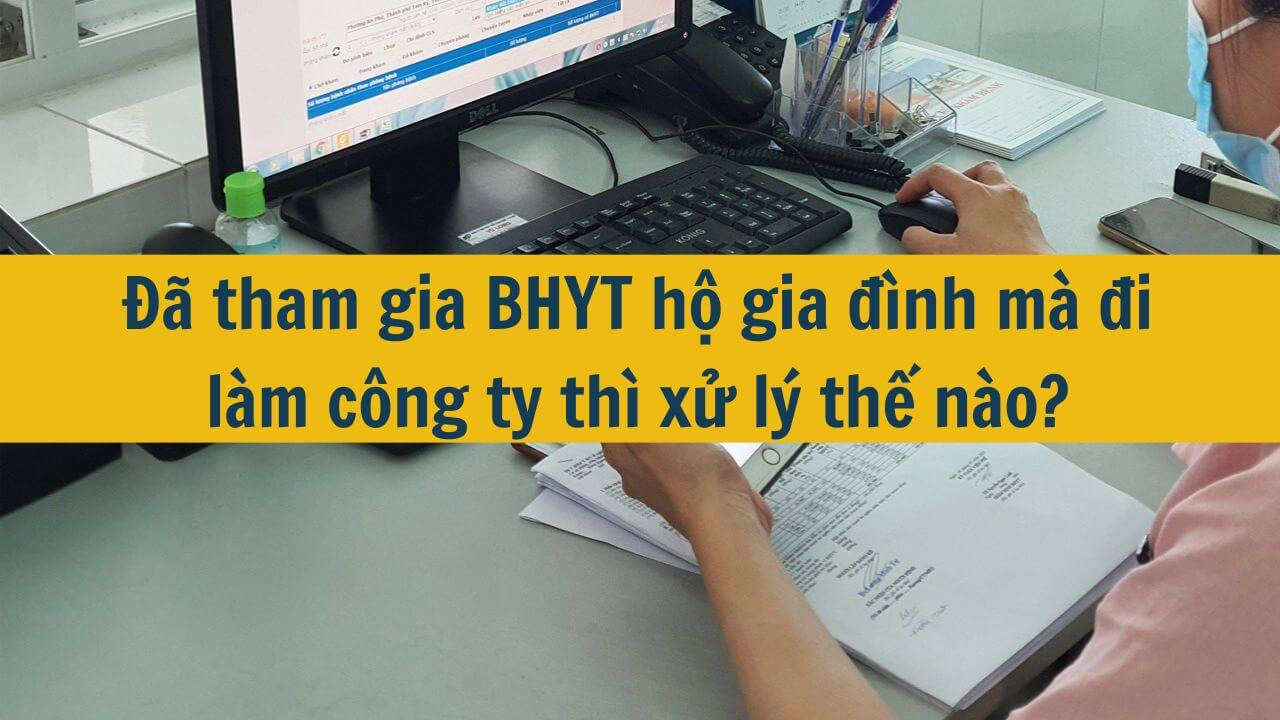
Đã tham gia BHYT hộ gia đình mà đi làm công ty thì xử lý thế nào?
Khi một người đã tham gia bảo hiểm y tế (BHYT) theo diện hộ gia đình nhưng sau đó đi làm tại công ty, họ sẽ thuộc diện bắt buộc tham gia BHYT do doanh nghiệp đóng. Điều này dẫn đến nhiều thắc mắc như. Thẻ BHYT hộ gia đình còn hiệu lực có được tiếp tục sử dụng không? Có được hoàn trả tiền đã đóng không? Thủ tục chuyển đổi như thế nào? Bài viết dưới đây sẽ giúp bạn hiểu rõ cách xử lý khi chuyển từ BHYT hộ gia đình sang BHYT bắt buộc tại doanh nghiệp theo quy định hiện hành. 24/03/202504 đối tượng tham gia BHYT hộ gia đình mới nhất 2025

04 đối tượng tham gia BHYT hộ gia đình mới nhất 2025
Bảo hiểm y tế (BHYT) hộ gia đình là một trong những chính sách an sinh quan trọng, giúp người dân tiếp cận dịch vụ y tế với chi phí hợp lý. Theo quy định mới nhất năm 2025, nhóm đối tượng tham gia BHYT hộ gia đình có một số điều chỉnh nhằm mở rộng phạm vi bao phủ và đảm bảo quyền lợi cho người dân. Vậy, những ai thuộc diện tham gia BHYT hộ gia đình theo quy định mới? Bài viết dưới đây sẽ cập nhật chi tiết 04 nhóm đối tượng tham gia BHYT hộ gia đình theo quy định mới nhất năm 2025. 24/03/2025Hộ gia đình tham gia BHYT gồm những ai?

Hộ gia đình tham gia BHYT gồm những ai?
Bảo hiểm y tế (BHYT) hộ gia đình là hình thức tham gia dành cho những người không thuộc diện bắt buộc, giúp đảm bảo quyền lợi chăm sóc sức khỏe với chi phí hợp lý. Tuy nhiên, nhiều người vẫn thắc mắc. Ai trong hộ gia đình phải tham gia BHYT? Có bắt buộc tất cả thành viên trong nhà đều phải đóng không? Để giải đáp những vấn đề này, bài viết dưới đây sẽ làm rõ quy định về đối tượng tham gia BHYT hộ gia đình theo pháp luật hiện hành. 24/03/2025BHYT hộ gia đình là bảo hiểm tự nguyện hay bắt buộc?
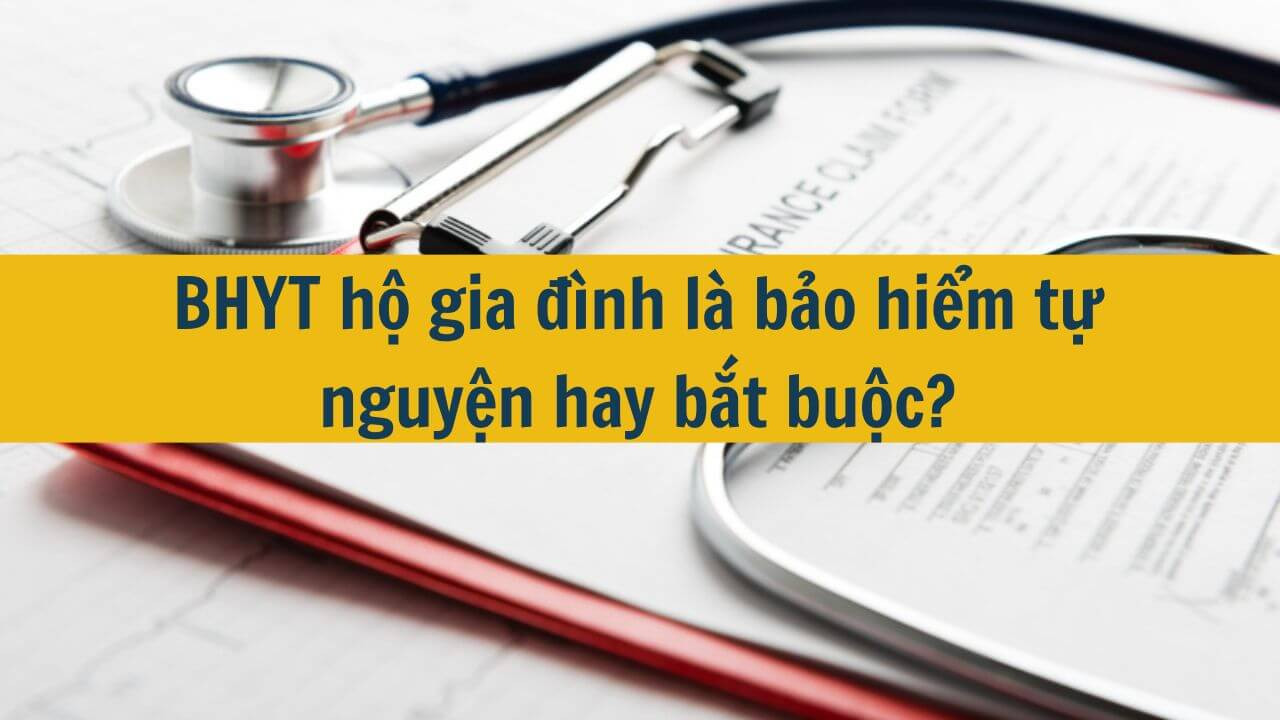
BHYT hộ gia đình là bảo hiểm tự nguyện hay bắt buộc?
Bảo hiểm y tế (BHYT) là chính sách an sinh xã hội quan trọng, giúp người dân giảm bớt gánh nặng tài chính khi khám chữa bệnh. Trong đó, BHYT hộ gia đình là một hình thức tham gia phổ biến, đặc biệt đối với những người không thuộc diện bắt buộc. Tuy nhiên, nhiều người vẫn băn khoăn rằng BHYT hộ gia đình là bảo hiểm tự nguyện hay bắt buộc? Việc tham gia có phải là lựa chọn cá nhân hay có quy định ràng buộc nào không? Bài viết này sẽ làm rõ bản chất của BHYT hộ gia đình theo quy định pháp luật hiện hành, giúp bạn hiểu rõ quyền lợi và nghĩa vụ khi tham gia loại hình bảo hiểm này. 24/03/202504 cách tra cứu giá trị sử dụng thẻ BHYT đơn giản thuận tiện mới nhất 2025
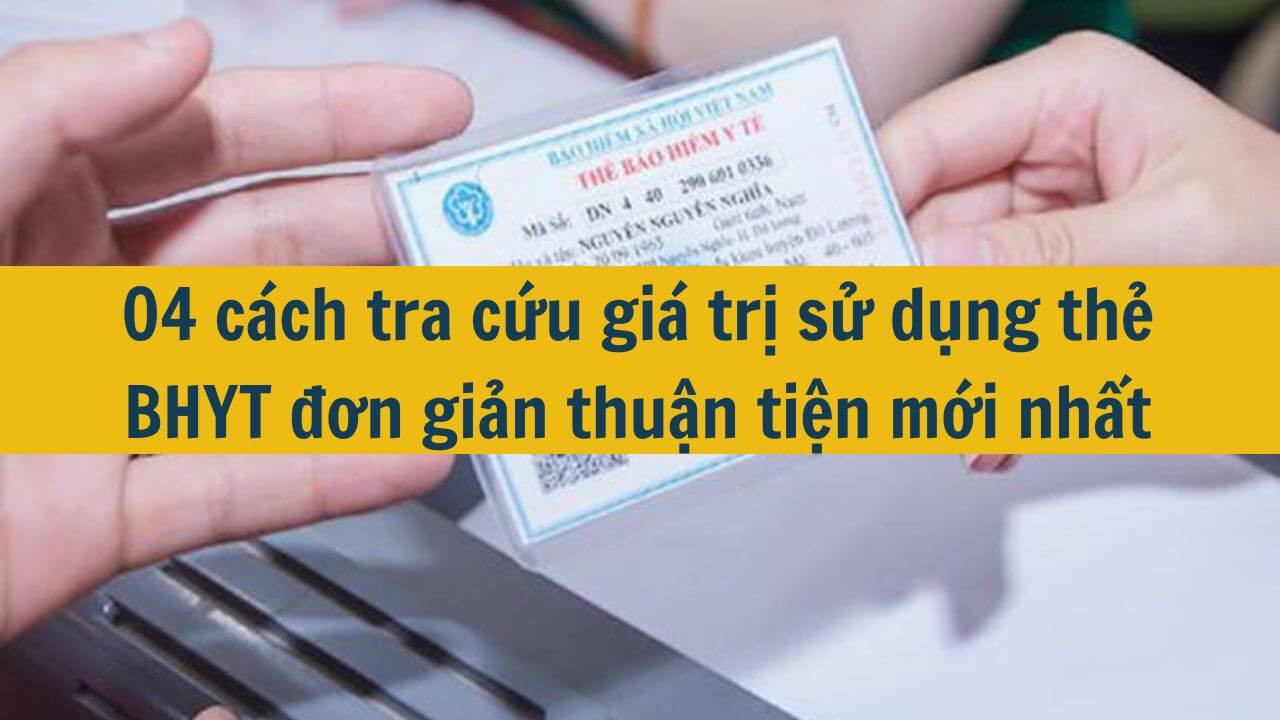
04 cách tra cứu giá trị sử dụng thẻ BHYT đơn giản thuận tiện mới nhất 2025
Từ ngày 01/07/2025, thẻ bảo hiểm y tế (BHYT) sẽ chỉ ghi thời điểm bắt đầu có hiệu lực, không còn hiển thị ngày hết hạn như trước. Điều này khiến nhiều người băn khoăn về cách kiểm tra giá trị sử dụng của thẻ để đảm bảo quyền lợi khám chữa bệnh. Hiện nay, Bảo hiểm xã hội Việt Nam (BHXH Việt Nam) đã triển khai nhiều phương thức tra cứu thuận tiện, giúp người dân dễ dàng kiểm tra thông tin thẻ BHYT mọi lúc, mọi nơi. Dưới đây là 04 cách đơn giản và nhanh chóng nhất để tra cứu giá trị sử dụng thẻ BHYT trong năm 2025! 23/03/202504 cách tra cứu thời hạn sử dụng thẻ BHYT đơn giản thuận tiện mới nhất 2025

04 cách tra cứu thời hạn sử dụng thẻ BHYT đơn giản thuận tiện mới nhất 2025
Từ ngày 01/07/2025, thẻ bảo hiểm y tế (BHYT) sẽ không còn ghi ngày hết hạn, khiến nhiều người băn khoăn về cách kiểm tra thời hạn sử dụng. Việc nắm rõ thời gian hiệu lực của thẻ giúp bạn chủ động gia hạn đúng hạn, đảm bảo quyền lợi khám chữa bệnh không bị gián đoạn. Hiện nay, Bảo hiểm xã hội Việt Nam (BHXH Việt Nam) cung cấp nhiều phương thức tra cứu BHYT dễ dàng, nhanh chóng. Dưới đây là 04 cách tra cứu thời hạn sử dụng thẻ BHYT đơn giản và thuận tiện nhất 2025 mà bạn có thể áp dụng ngay! 21/03/2025Cách tính thời hạn bảo hiểm y tế mới nhất 2025
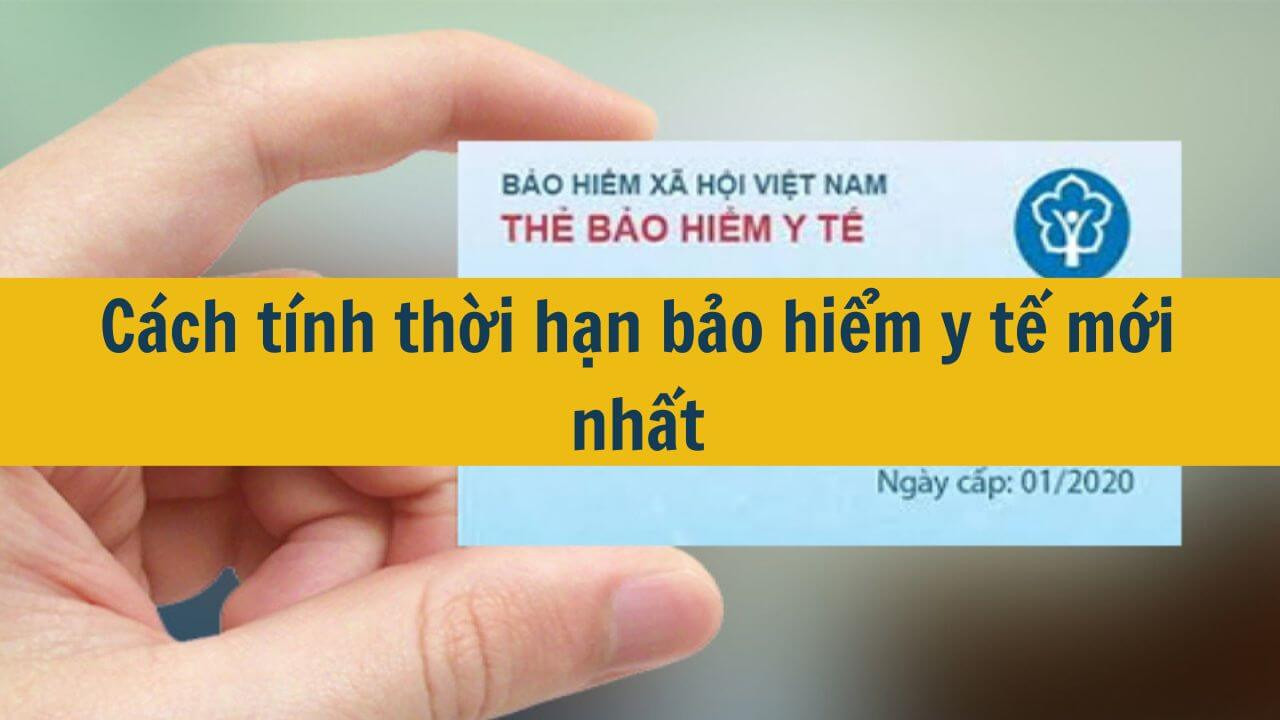
Cách tính thời hạn bảo hiểm y tế mới nhất 2025
Bảo hiểm y tế (BHYT) là chính sách an sinh quan trọng, giúp người dân tiếp cận dịch vụ y tế với chi phí thấp hơn. Từ ngày 01/07/2025, quy định về thời hạn sử dụng thẻ BHYT sẽ có một số thay đổi, ảnh hưởng đến cách tính thời gian hiệu lực của thẻ. Vậy thời hạn BHYT được tính như thế nào? Có gì khác so với trước đây? Hãy cùng tìm hiểu chi tiết để đảm bảo quyền lợi bảo hiểm y tế của bạn luôn được duy trì! 21/03/2025Thẻ bảo hiểm y tế hết hạn có phải đổi không?
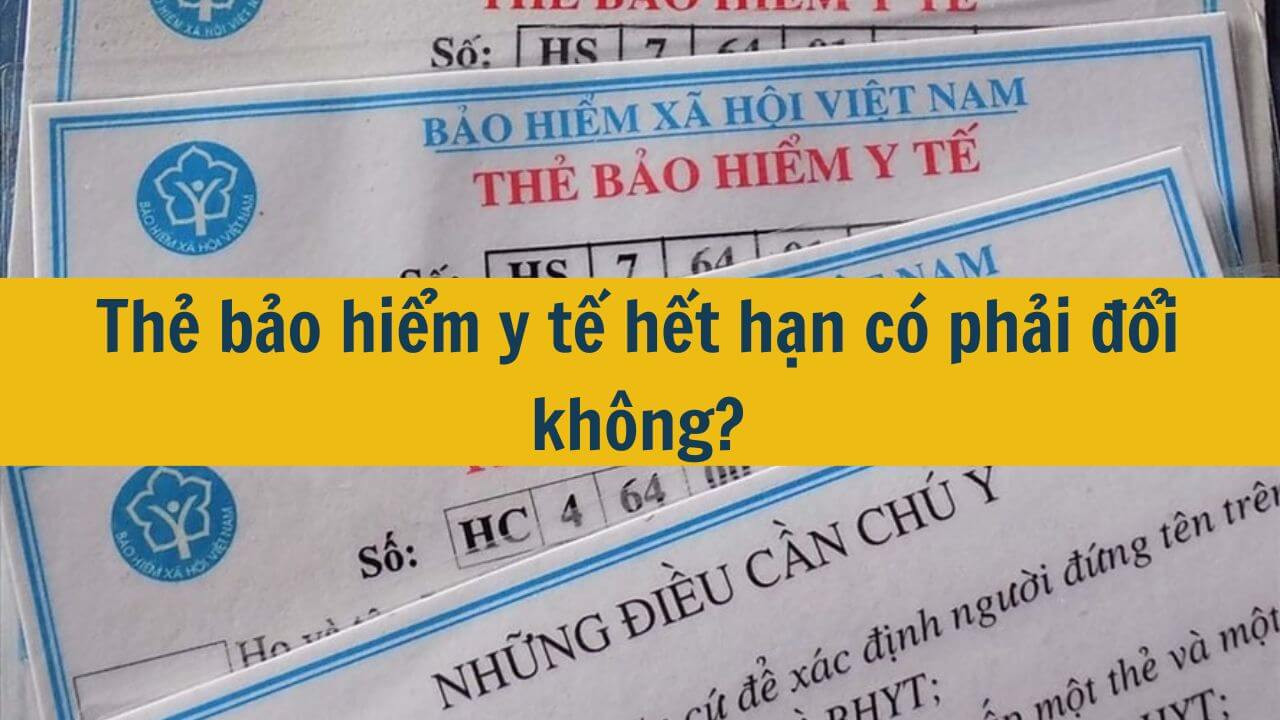
Thẻ bảo hiểm y tế hết hạn có phải đổi không?
Bảo hiểm y tế (BHYT) là tấm "lá chắn" giúp người dân giảm bớt gánh nặng chi phí khi khám chữa bệnh. Tuy nhiên, nhiều người thắc mắc rằng khi thẻ BHYT hết hạn, có cần đổi thẻ mới hay không? Đặc biệt, từ ngày 01/07/2025, quy định về thẻ BHYT có sự thay đổi, ảnh hưởng đến cách thức sử dụng và gia hạn thẻ. Hãy cùng tìm hiểu chi tiết để đảm bảo quyền lợi bảo hiểm y tế của bạn không bị gián đoạn! 21/03/2025Làm sao để biết khi nào BHYT hết hạn mới nhất 2025?


 Nghị định 146/2018/NĐ-CP (Bản Word)
Nghị định 146/2018/NĐ-CP (Bản Word)
 Nghị định 146/2018/NĐ-CP (Bản Pdf)
Nghị định 146/2018/NĐ-CP (Bản Pdf)